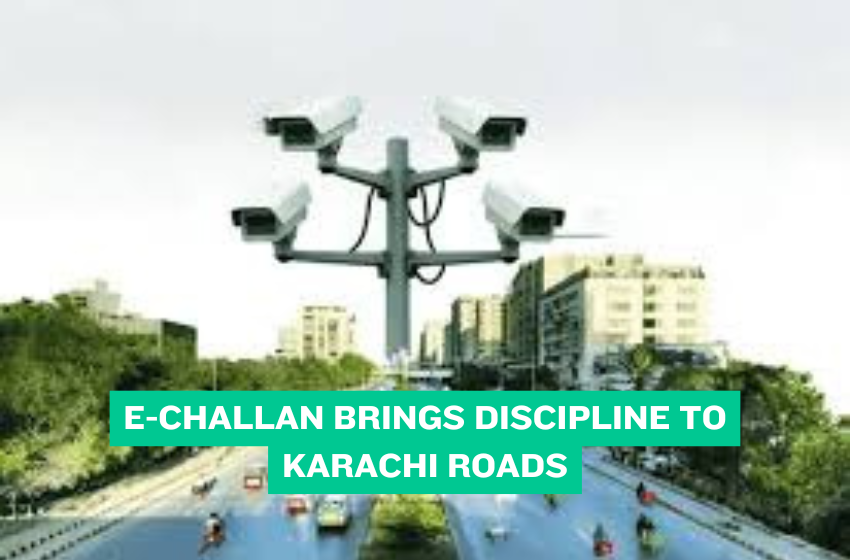
E-Challan Brings Discipline to Karachi Roads
E-Challan brings discipline to Karachi roads, said DIG Traffic Karachi Peer Muhammad Shah. He shared that after the introduction of e-challan, people are now following traffic rules more responsibly. Most riders wear helmets, drivers stop at the line, and over 90% use seat belts. Signal breaking has also reduced greatly.
During an interview on Dawn News’ morning show “Chai, Toast, Host,” DIG Shah mentioned that the e-challan system has encouraged safer driving habits. He admitted that some challenges remain but added that the system will improve with time.
He explained that the automated challan system issues tickets accurately, with only two or three minor errors out of ten thousand. Traffic officers verify number plates before printing tickets to ensure correctness.
He urged citizens to keep their number plates clean and permitted them to use properly sized temporary plates until they receive official ones.
DIG Shah guided people who have sold their vehicles to update ownership details at Excise or NADRA e-Sahulat centers to avoid receiving challans. If they still receive one, they can visit any of the 11 facilitation centers across Karachi for assistance.
He warned that using fake number plates is a crime, not just a traffic violation. The Safe City Authority files an FIR immediately in such cases.
In Lahore, he clarified, a Rs. 200 fine for not wearing a helmet is not possible. Instead of paying Rs. 2500 in fines, he advised citizens to buy a Rs. 1200 helmet for safety.
He said awareness about seat belts is increasing, though some drivers still ignore them. The first challan is excused, but repeat violations are fined. Even if a car breaks rules multiple times a day, it receives one challan and warnings for the rest.
He explained that passengers without seat belts put drivers at risk, and traffic police will fine bike passengers who ride without helmets. The e-challan system, he said, is corruption-free, and no one can change or cancel fines through bribes.
He hinted that the government might introduce community service options instead of fines for repeat offenders. Buses and trucks also receive challans through trackers, and discussions with other provinces are ongoing for vehicle registration coordination.
For government vehicles, fines will be issued to department heads, and if not paid within 21 days, the vehicle will be blocked.
He also warned Chingchi drivers to follow rules or face route restrictions. Soon, they will also receive challans, and those carrying passengers beside them will be fined Rs. 15,000.
In conclusion, E-Challan brings discipline to Karachi roads by promoting safety, reducing violations, and building a culture of responsible driving across the city.









